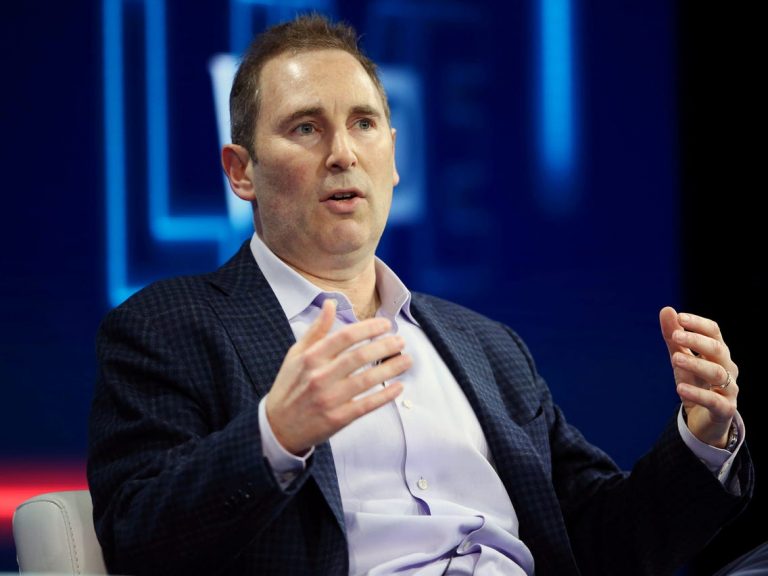
Tech giant, Amazon, under the leadership of CEO Andy Jassy, continues to operate with the mindset of a startup, albeit the world’s largest one.
This approach is driven by a relentless focus on solving real customers problems and improving customer experiences, rather than building for technology’s sake. Jassy in his 2024 letter to shareholders, disclosed that companies can get off track prioritizing technology because they are excited about it and lose its core focus, which are customers.
He further emphasized that great companies like Amazon, which operates a startup playbook model, aren’t carried away with flashy technological advancements, rather it is on a mission to change what’s possible for customers, ensuring every initiative addresses a genuine need or elevates satisfaction.
Register for Tekedia Mini-MBA edition 19 (Feb 9 – May 2, 2026).
Register for Tekedia AI in Business Masterclass.
Join Tekedia Capital Syndicate and co-invest in great global startups.
Register for Tekedia AI Lab.
One key to Amazon’s continued success is its deep need for builders, those inventive individuals who constantly question the status quo and look for ways to improve even the best-performing systems. These builders are “divinely discontent,” never satisfied with past achievements and always pushing to make things better.
Another pillar of Amazon’s operating model is ownership. Jassy highlights that Amazon has succeeded over the past 30 years because it has consistently hired smart, motivated individuals who take responsibility like owners. These individuals don’t just focus on their assigned tasks they think broadly about the entire business, ask hard questions, and feel personally accountable for the customer experience.
At Amazon, the mission of the company becomes the personal mission of each employee. The company values missionaries over mercenaries, and its culture encourages flatter structures with more individual contributors owning “two-way door” decisions and acting swiftly.
Speed, Jassy emphasizes, is another critical factor. Amazon believes that moving quickly doesn’t have to come at the expense of quality. On the contrary, the company sees speed as a leadership decision, one that must be continuously reinforced, structurally supported, and culturally embraced. In a world of fierce competition, being fast and customer-focused is non-negotiable.
To that end, eliminating bureaucracy is a top priority. While processes are essential at scale, unnecessary red tape frustrates builders and slows down progress. In a recent call for feedback, Jassy received nearly 1,000 examples of bureaucratic hurdles from employees and has already led over 375 changes in response. The company is committed to removing any obstacle that hinders innovation and morale.
Jassy also underscores the importance of scrappiness. He recalls how Amazon Web Services (AWS) pillars like S3 and EC2 were built with small teams of 13 and 11 people, respectively. Contrary to the belief that success requires large teams, Amazon encourages lean operations, where leaders achieve more with fewer resources and take pride in efficiency.
Taking risks is another hallmark of the Amazon way. Jassy acknowledges that risk-taking isn’t always easy, especially for high-performing individuals unaccustomed to failure. However, he argues that breakthrough innovation comes from taking bold bets guided by customer obsession, not from playing it safe or copying others.
The startup playbook described by Amazon CEO Andy Jassy represents a cultural and operational blueprint that has played a central role in the company’s extraordinary growth and resilience over the years.
How This Has Helped Amazon’s Growth
Revenue Growth
From $107 billion in 2015 to $574 billion in 2023, Amazon’s revenue reflects its ability to scale across industries. The company’s operating income in 2024, improved 86% YoY, from $36.9B to $68.6B.
Enabled Game-Changing Innovation
Products like Amazon Prime, AWS, Kindle, and Echo/Alexa came from a startup mentality—testing bold ideas quickly and scaling what works.
Maintained Agility at Scale
Even as one of the world’s largest companies, Amazon has remained nimble, entering and disrupting industries like cloud computing, logistics, entertainment, and healthcare.
Built a Resilient Business Model
During economic slowdowns or market disruptions like the COVID-19 pandemic, Amazon’s startup mindset allowed it to quickly pivot and respond to new demands, such as ramping up logistics and cloud services.
Attracted and Retained Talent
By empowering employees with ownership, autonomy, and purpose, Amazon has built a workforce that drives long-term value and innovation.
Sustained Customer Loyalty and Market Dominance
Constant improvement in customer service, delivery speed, and product selection fueled by this playbook, has kept customers coming back and helped Amazon grow into one of the most trusted global brands.
Ultimately, what matters most at Amazon is delivering tangible, compelling results for customers. Jassy makes it clear that success is not about charisma or managing office politics; it’s about what teams actually get done.
At its core, Amazon’s startup mentality remains the true north for the company, one that enables it to scale globally without losing its entrepreneurial edge.



